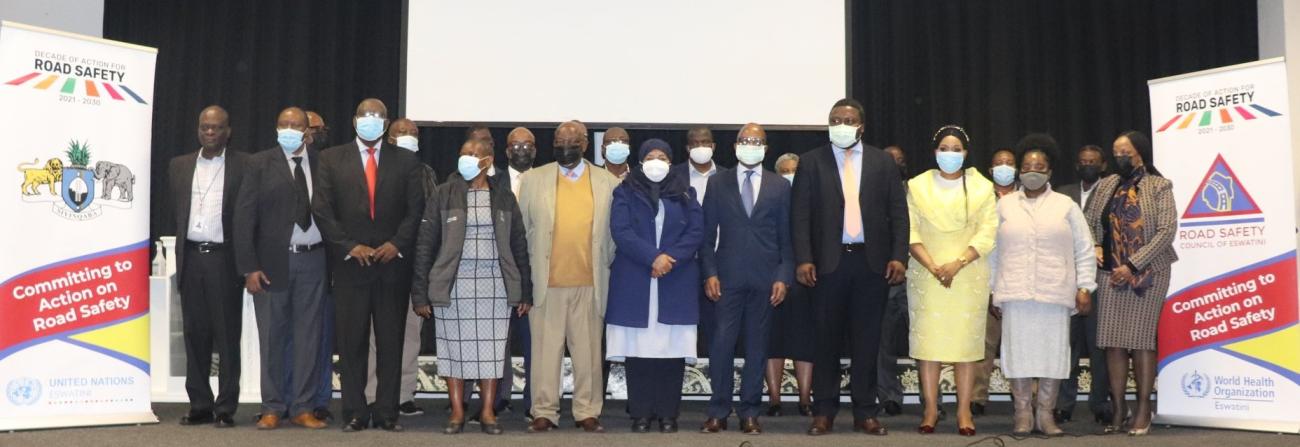Eswatini Prime Minister, Hon. Cleopas Dlamini, has launched the 2nd Decade of Action on Road Safety for the period 2021-2030, and has declared “enough is enough” while committing to reducing road accident deaths and injuries by 50 percent.
WHO and the UN regional commissions, in cooperation with other partners in the UN Road Safety Collaboration, have developed a Global Plan for the Decade of Action, which was launched in October 2021.
“Today, we are gathered here to declare “enough is enough”, said the Prime Minister at the launch held at Esibayeni Lodge in Matsapha. “Let us all consider Road Safety as a Shared Responsibility where Government efforts are complemented by the private sector, civil organisations, Non-Government Organisations and every citizen in the fight against this scourge.
“As we commit to the Call for Action on Road Safety until 2030, I urge each and every liSwati to use the road responsibly. As much as the targets of the Decade of Action on Road Safety are ambitious, they are, however, achievable.”
The 1st Road Safety Decade of Action which covered the period 2011-2020 prioritized five pillars, including road safety management; safer roads and mobility; safer vehicles; safer road users and post-crash response. The 2nd Decade of Action builds on the considerable work done in the 1st Decade of Action with five pillars that include multimodal transport and land use planning; safe road infrastructure; safe vehicles; safe road use; and post-crash response.
Eswatini has also ratified the African Road Safety Charter whose fundamental aim is to improve road safety through road construction, vehicle safety, safe road use and post-crash care.
Pedestrians account for more than 60% of road traffic accidents. The Prime Minister committed to ensuring that all roads to be constructed to cater for non-motorised transport. Non-motorised transport is transport which has no mechanical engine that propels it. . These include animal drawn vehicles, walking, road running, cycling and others. “Let all roads designed; be it in urban or rural areas, include facilities for non-motorised transport which mostly fall under vulnerable road users,” he said. “It is encouraging that the recently completed MR3 Lot 1 and 2 have accommodated various means for Non-Motorised Transport to use the road and we can only improve from here.”
UN Resident Coordinator, Mr. George Wachira, who was represented by UNICEF Representative, Ms. Amina Mohammed at the launch, expressed concern that low- and middle-income countries account for more than 90% of all road traffic deaths despite having less than 60% of the world’s motor vehicles.
He noted that the UN has taken the road safety challenge seriously and encouraged other international organisations, non-governmental organisations, community based organisations and civic groups to do the same. “As the UN Family, we have also committed, together with the Government and partners, to reducing morbidity and mortality through deaths due to road traffic injuries,” he said.
“The time to act is now. The intolerable death and injury toll and the start of the next Decade of Road Safety, give us impetus to do things differently. Let us make safer roads for a safer Eswatini. Let us join hands in crafting a new vision for safer and healthier Eswatini.”
The launch was attended by senior government officials, including parliamentarians, civil society, private sector and representatives of the transport sector.






